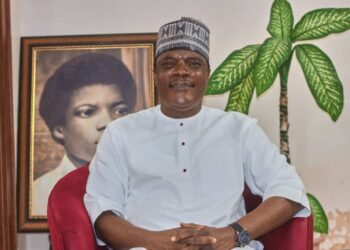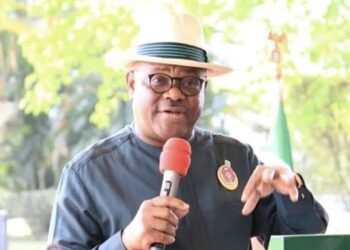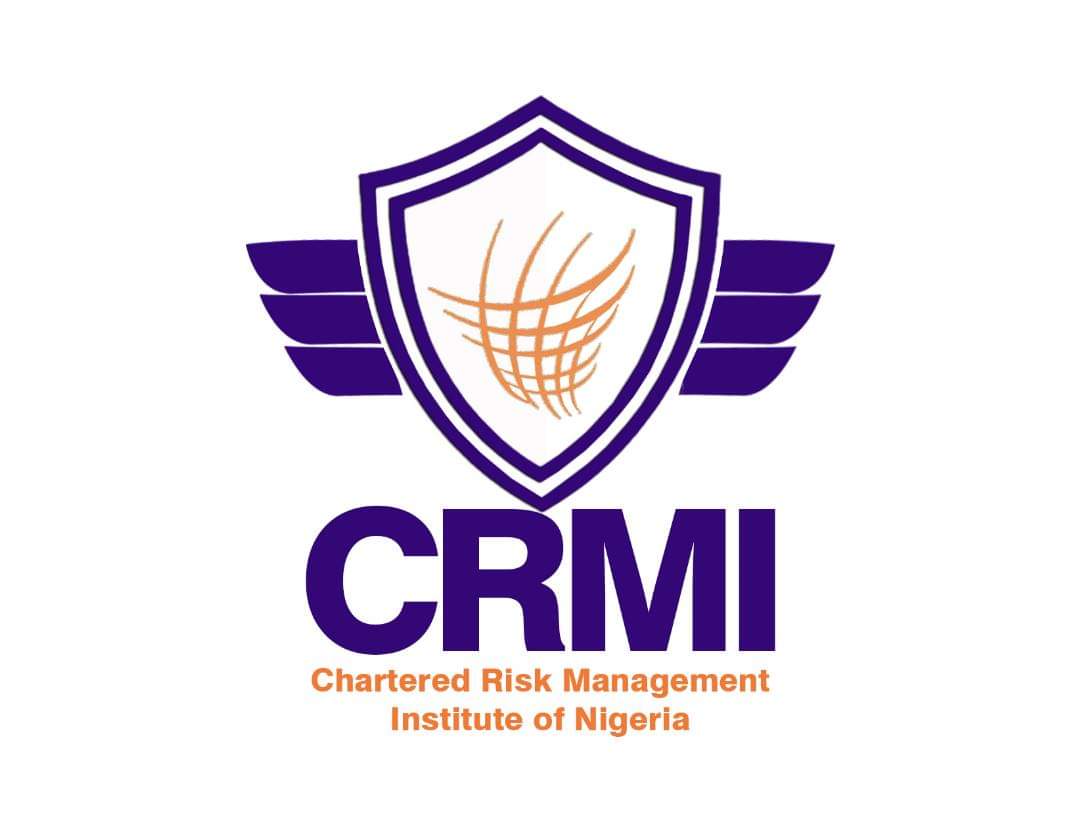-Dissecting resource mismanagement and global power dynamics in Africa-
The Geopolitics Series 2.0, a forum organised by the Media Centre for Development (MCD) and facilitated by Global Sentinel, Security Intel Africa and Ayanda Media Network, convened experts from around the world to dissect Africa’s challenges in utilizing its resources for development. As global attention turns to Africa’s potential, the series dissected resource mismanagement and global power dynamics in Africa. The panel of experts, participants and conveners also explored factors contributing to underdevelopment: resource mismanagement, historical exploitation, and leadership gaps. Discussions highlighted the paradox of resource-rich yet struggling nations and stressed effective leadership, equitable trade, educational reform, and collaboration. The series calls for collective action to drive Africa towards prosperity, stability, and a stronger global presence.
Unlocking Africa’s Potential: Insights from Geopolitics Series 2.0
The complex underdevelopment challenges plaguing Africa find their roots in a delicate interplay of factors: mismanagement of resources within African nations and the historical dominance of global powers shaping the continent’s economic and political landscape. The second Geopolitics Series webinar, delved into these pressing issues. Titled “Africa Fragility: Resource Curse or Resource Mismanagement?”, the webinar brought together distinguished experts and participants to dissect Africa’s struggle to harness its resources for sustainable growth. Speakers included Paul Turner, President and Executive Director of The Fund for Peace in Washington DC; Prof. PLO Lumumba, President of the PLO Lumumba Foundation and Director of the Kenya School of Law in Nairobi; Prof. Adriano Nuvunga, Director of CDD and Chairperson of the Mozambique Human Rights Defenders Network in Maputo; and David Endeley Otto, International Terrorism Consultant at Stepp In Stepp Out UK Ltd in London. paradox is palpable: Africa holds vast natural and human resources—oil, gas, minerals, and a young educated populace—yet remains among the world’s poorest. A legacy of colonialism, resource mismanagement, global power dynamics, and governance deficits emerged as key culprits. The webinar’s insights underscored the need for transparent governance, accountable leadership, educational reform, technology investment, and international collaboration to steer Africa toward a future of prosperity and global prominence.
Decoding Africa’s Underdevelopment
In the quest to address Africa’s enduring underdevelopment amid global growth and shifting power dynamics, the Geopolitics Series emerged as a beacon. Coordinated by the MCD in collaboration with Global Sentinel, Public Intel Security Africa, and Ayanda Media Network, this series aims to dissect global issues impacting Africa’s peace, security, economy, governance, and development, with a focus on Nigeria and the continent at large. The inaugural edition celebrated the African Union’s 60th Anniversary, delving into conflict management in the 21st century. Building on this success, the second edition explored economic security and Africa’s struggle to harness its resources effectively. The series dissected Africa’s limited global influence, economic contribution, and the “resource curse,” wherein mismanaged natural resources exacerbate challenges. This effort serves as a platform for thought leaders to decipher the complexities stifling Africa’s progress and to pave the way for transformative change. Through critical analysis, it strives to redefine Africa’s trajectory by combining its resources, youth potential, visionary leadership, and robust governance for a future of prosperity and sustainable development.
Africa’s complex journey towards development was scrutinized in the Geopolitics Series, where experts dissected the intricate web of factors driving underdevelopment. Internal challenges like governance flaws and corruption were unveiled as fundamental culprits. Governance deficits perpetuate inefficiencies and embezzlement, diverting resources from critical sectors. The shadow of colonialism looms large, with its arbitrary borders and ethnic divisions still sowing discord. Global dynamics also play a role, with unequal trade and neocolonialism hampering progress. However, the series emphasized that the responsibility for change rests not solely on history and external pressures. Africa’s internal drive and pragmatic leadership are crucial. The series called for transparent governance, fair trade, and a harmonious fusion of cultural identity and modern practices. Ultimately, the series underscored the necessity of a concerted effort between Africa and the global community to mend the fractures of underdevelopment, transforming aspirations into realities.
Addressing Resource Mismanagement in Africa
Mr. David Otto, a security and counterterrorism expert, delved into Africa’s fragility, spotlighting indicators such as corruption and economic instability. He noted that despite abundant resources, outdated healthcare and education systems hinder growth. Otto highlighted, “During COVID, Africa’s health system struggled due to lack of infrastructure. Educational systems are outdated, still echoing colonial curriculum despite resource wealth.” He contended that the relationship between growth and resources isn’t straightforward and emphasized the need for governance and diversification. Otto stressed the mismanagement of Africa’s resources and urged a focus on human resource development. He cited successful resource-poor countries like Rwanda as examples. Otto underscored Africa’s potential but lamented its underrepresentation in global geopolitics. He stressed governance, mindset shifts, unity, and workforce utilization as key to addressing Africa’s multifaceted fragility.
In the same vein, Paul Turner, President and Executive Director of the Fund for Peace Washington DC, beamed searchlight on Africa’s role in global power dynamics. He analyzed Africa’s recent challenges, linking rising food prices to global disruptions and events like the Russian invasion in Ukraine. He noted leaders’ varied responses, leading to protests and fragility. Turner underscored global power shifts and their implications for international relations, urging African leaders to leverage major powers’ competition for economic gain. He stressed the importance of effective resource management, acknowledging technology’s transformative potential. Turner highlighted, “The Cold War is behind us… If skillfully navigated by African leaders, these impacts could work to their advantage.” He noted the context-dependent nature of resources as blessings or curses and looked forward to case studies shedding light on economic challenges and opportunities in African countries.
On his part, Prof. PLO Lumumba, Chairman and Founder of the PLO Foundation, made a call for change in resource management in Africa in order to drive progress and become a major player in global arena. He highlighted equitable agreements in dealings with global powers like the Western world, China, and Russia, emphasizing resource extraction like cobalt or gold. He noted poor contracts enabled foreign corporations in sectors like oil and agriculture to exploit African countries.
Lumumba challenged the notion of a “resource curse,” attributing it to mismanagement within African nations. He cited Total Energies, Shell, and ExxonMobil exploiting Nigeria and Ghana in oil, and foreign entities benefiting from African agricultural products. He emphasized, “Africa’s perceived resource curse isn’t due to curses, but mismanagement. Political class’s unfavourable contracts led to foreign exploitation. In agriculture, Togo, Côte D’Ivoire, and Ghana’s minimal value addition benefits foreigners. It’s a failure to maximize opportunities.”
Lumumba attributed this to Africa’s political vulnerability and advocated for industrialization, energy infrastructure, and value addition to move away from raw material trade. He urged unity in negotiations to counter manipulation, stressing Africa’s human resources. He concluded, “Time to move beyond lamentation. We possess ample human resources. Fragility only emerges when one chooses to be fragile. The time for change is now.”
Harnessing Africa’s Youth Potential
Prof. Adriano Nuvunga, Director of CDD, highlighted the opportunities and challenges presented by Africa’s youthful population. He emphasized inadequate democratic spaces hindering youth participation and declining voter turnout despite population growth. Nuvunga linked this to deteriorating education quality.
“Africa’s unprecedented youth population holds immense potential, but insufficient democratic avenues obstruct their engagement. Voter turnout declines despite population growth, intertwined with declining education quality, ” he said.
He highlighted debt distress, exemplified by Mozambique’s struggle due to debt servicing and limited development revenue. Nuvunga criticized ineffective leadership, corruption, and resource mismanagement, advocating for visionary leaders. The rights activist discussed global governance systems enabling exploitation, citing unequal investment flows and tax havens. He urged reshaping global governance to benefit Africa’s resources and noted internal and external factors contributing to African countries’ fragility.
Nuvunga’s insights stress addressing education, governance, and international cooperation to unlock Africa’s youth and resources.
Senator Iroegbu, Geopolitics Series Convener, acknowledged Africa’s wealth and challenges, questioning how to harness resources for global leadership. Iroegbu weaved prior speakers’ points, exploring leadership’s role in resource exploitation and economic growth. The Editor-In-Chief of Global Sentinel, probed why resource-rich nations struggle as resource-poor flourish, delving into resources, leadership, and development. Amidst Africa’s mineral and agricultural wealth, Nigeria’s example revealed progress hindered by poor leadership.
He quoted a Nigerian adage, “We have everything we need, but our progress is hindered by bad leadership,” encapsulating citizens’ frustration with untapped potential.
Co-Conveners Ms. Dakore Ekpendu, CEO of Security Intel Africa, echoed this sentiment, linking resources to inadequate leadership’s impact, and Ms. Ayanda Ngwane, Founder of Ayanda Media Network, stressed leadership’s role in Africa’s hurdles. The event’s Q&A sought solutions for Africa’s growth and stability by addressing its leadership deficit.
Key Takeaways and Recommendations
The Geopolitics Series 2.0 produced key takeaways and recommendations:
Resource Mismanagement and Fragility: It was observed that Africa’s resource wealth hasn’t translated into economic growth due to mismanagement and corruption. Also, fragility is evident in struggling resource utilization. To this end, it was recommended to prioritize transparent governance and effective regulations as well as foster accountable leadership to prevent resource exploitation for personal gains.
Leadership and Development: Effective leadership determines whether resource abundance leads to prosperity, therefore, bad leadership, often corrupt and short-term focused, hinders progress. Against this backdrop, there is a need to develop visionary, accountable leadership. Plan for citizen welfare and sustainable development, converting resource wealth into tangible progress.
Youth Population and Democratic Spaces: Inadequate democratic spaces hinder youth participation, and the declining voter turnout requires better education and civic engagement. To forestall this further decline is to invest in quality education and civic education, and also, encourage youth participation for informed and active citizenship.
Global Power Dynamics and Exploitation: Historical exploitation by global powers has led to unequal trade relationships. External factors like investment flows diminish revenue potential. There is therefore, a need to seek fair trade, economic diversification, and global economic system restructuring for equitable exchanges and reduced exploitation.
Industrialisation and Value Addition: Exporting raw materials without value addition limits growth and job creation. Industrialisation enhances stability and resilience. To counter this, African countries must prioritize industrialisation and value addition. Encourage local processing, manufacturing, and reduced dependency on raw material exports.
Human Capital and Collaboration: Abundant human resources remain underutilised. Collaboration is essential for solving common challenges. It therefore, recommended to invest in education, skills, and capacity-building. Collaborate for knowledge sharing, technology transfer, and collective problem-solving.
Conclusion
Geopolitics Series 2.0 highlighted Africa’s challenges and opportunities. Effective leadership, resource management, education, fair trade, and collaboration are crucial. By prioritising these, Africa can harness its potential, achieving sustainable growth and stability.










